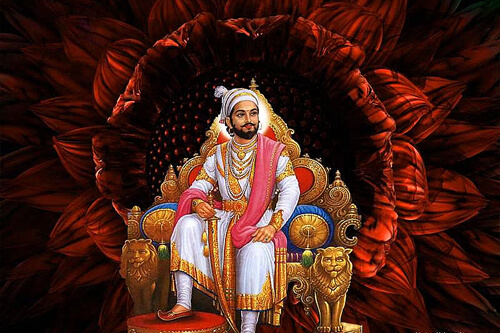CHHATRAPATI SHIVAJI MAHARAJ

Chhatrapati Shivaji Maharaj (1630–1680) was a Maratha warrior king and the founder of the Maratha Empire in western India in the 17th century. He is considered one of the greatest military leaders in Indian history and is often referred to as the "Father of the Indian Navy" due to his strategic vision and development of a strong naval force.
Key points about Chhatrapati Shivaji Maharaj:
Early Life: Shivaji was born in 1630 in the fort of Shivneri, near Pune. He belonged to the Bhonsle Maratha clan.
Coronation: Shivaji was crowned as Chhatrapati (meaning "paramount sovereign") in 1674, marking the establishment of the Maratha Empire.
Military Achievements: Shivaji was a skilled military tactician and strategist. He used guerrilla warfare tactics to challenge the powerful Mughal Empire and the Bijapur Sultanate.
Raigad Fort: Shivaji established his capital at the Raigad Fort in the Western Ghats, which became a symbol of Maratha power.
Navy: Recognizing the importance of naval power, Shivaji built a strong navy and secured control over strategic coastal regions.
Religious Tolerance: Shivaji was known for his policy of religious tolerance. He promoted a secular administration and respected all religions.
Administrative Reforms: Shivaji implemented administrative reforms, including a well-organized revenue system, a network of forts, and efficient governance.
Legacy: Shivaji's legacy is significant in Indian history. He is remembered as a brave and visionary leader who laid the foundation for the Maratha Empire, which later played a crucial role in shaping the political landscape of India.
Fortifications: Shivaji built a network of forts, strategically located to defend his territories. These forts were not only military strongholds but also centers of administration.
Code of Ethics: Shivaji formulated a code of ethics for his administration known as the "Hindavi Swarajya," emphasizing principles of good governance and justice.
Chhatrapati Shivaji Maharaj's life and achievements have inspired many, and he is celebrated as a hero in Maharashtra and across India. His contributions to military strategy, naval warfare, and administrative governance continue to be studied and admired.
